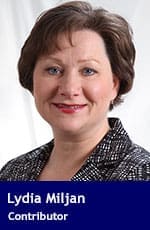 Quebec Justice Minister Sonia LeBel recently announced that the government is moving forward with electoral reform.
Quebec Justice Minister Sonia LeBel recently announced that the government is moving forward with electoral reform.
Yet unlike other provincial governments, rather than proceed with a referendum, the Coalition Avenir Quebec (CAQ) government will table a bill to move Quebec to a mixed member proportional (MMP) electoral system before Oct. 1.
LeBel claims that the bill “will have the largest consensus possible.”
How a government can claim consensus without asking the question is quite a head-scratcher.
To “educate the public” on MMP, the government has given $225,000 to the non-partisan group New Democracy Movement (MDN). To justify this grant and lack of a referendum, Le Bel said, “We think that this is something that has to be explained, discussed, exchanged with the population. It’s not a matter of having a vote, being behind a little box and saying yes or no.”
While MDN is non-partisan, it’s not neutral on the position of electoral reform. According to its objectives, it focuses “on obtaining a new voting system in Quebec.” In fact, MDN’s proposal was the basis of a 2007 report from Elections Quebec.
Clearly the justice minister and MDN hope the public outreach and education initiatives will provide legitimacy to the new legislation. But how will they measure support of this consensus without a referendum? And how will they ensure that all the public is consulted?
A review of the MDN website provides more questions than answers.
First, the website is only offered in French. One concern about the government’s proposal for MMP is that ridings will be redistricted. One version of the MMP system would have 77 ridings elected by the first-past-the-post method, with 50 ridings distributed based on the proportion of provincial support, of which some will be distributed on a regional basis according to population.
To make this work, local ridings would be enlarged. For example, in one variation of the proposal, the current 27 Montreal-area ridings would be reduced to 18. These ridings have the largest concentration of anglophones in the province. However, because the population is large, there would be an additional 12 seats awarded to the region. Those regional seats would be awarded proportionately to the party’s overall vote in that region.
Because MDN offers its education program only in French, anglophones may fear they’ll be ignored in this consensus-building exercise. (The government report, which explains the different MMP models, is offered only in French with an executive summary in English.)
There’s also a contradiction within the justice minister’s statement and the approach of MDN. To have an exchange, there can’t be a one-sided conversation. The fact that MDN will oversee the education program eliminates the ability of the other sides of the electoral reform debate to present an alternative argument. The Quebec government is framing this conversation in a ‘we will tell you how to think about this issue’ fashion.
This is a dangerous way for a government to try to accomplish something as important as electoral reform. As we learned from the court case on the Trans Mountain pipeline, meaningful consultation is not a one-way conversation. And yet, the Quebec government appears completely unconcerned that an advocacy group in favour of electoral reform seems to be consulting with only one part of the electorate.
This despite the government’s lofty objectives of embodying Quebec’s diversity and allowing for political pluralism.
Finally, despite the rhetoric and numerous attempts to change electoral systems in Canada, neither the federal government nor any of the provinces have been able to move forward on this file. While proponents of electoral reform will undoubtably blame the referendum process, the fact remains that consensus has not been established.
It’s wrong to equate the adoption of electoral reform on a political party platform with consensus on the subject. While smaller parties (including the Greens, NDP and CAQ) would like electoral reform, that’s not the same as having the public at large agree with – or even be aware of – this vital issue.
Lydia Miljan is a senior fellow at the Fraser Institute and associate professor of political science at the University of Windsor.
The views, opinions and positions expressed by columnists and contributors are the author’s alone. They do not inherently or expressly reflect the views, opinions and/or positions of our publication.


